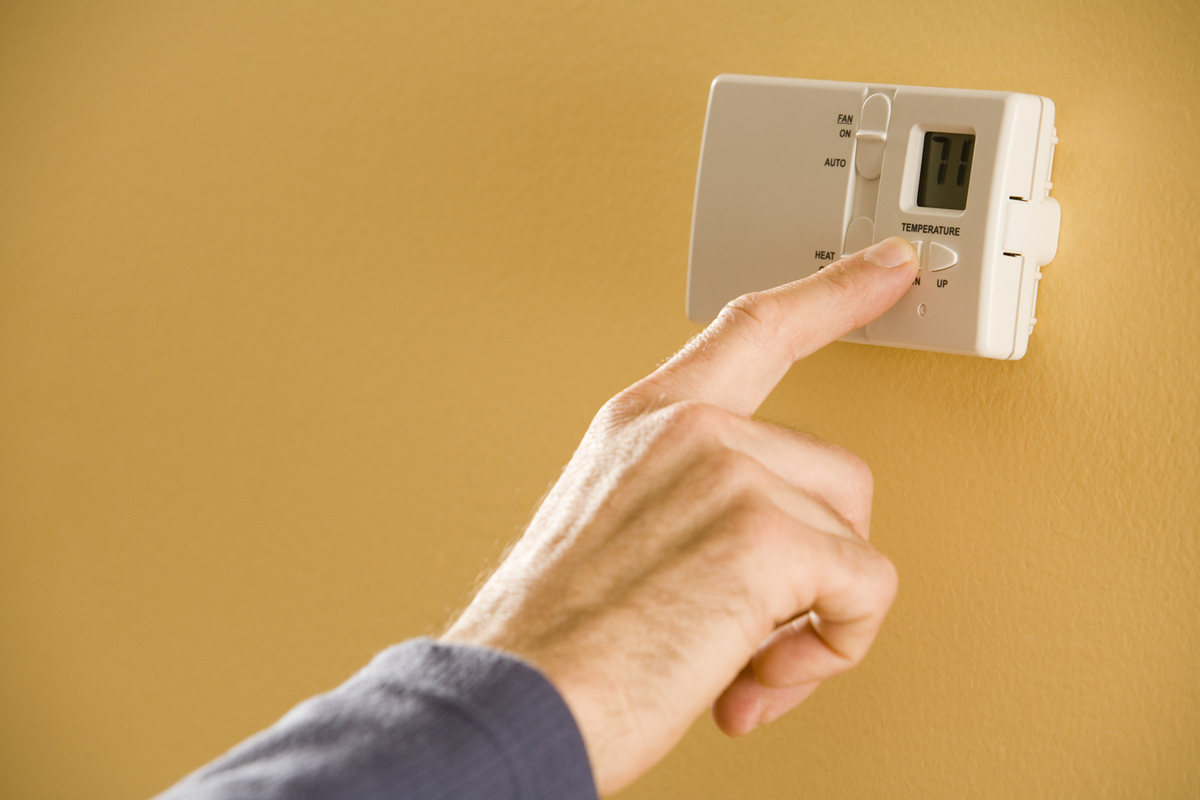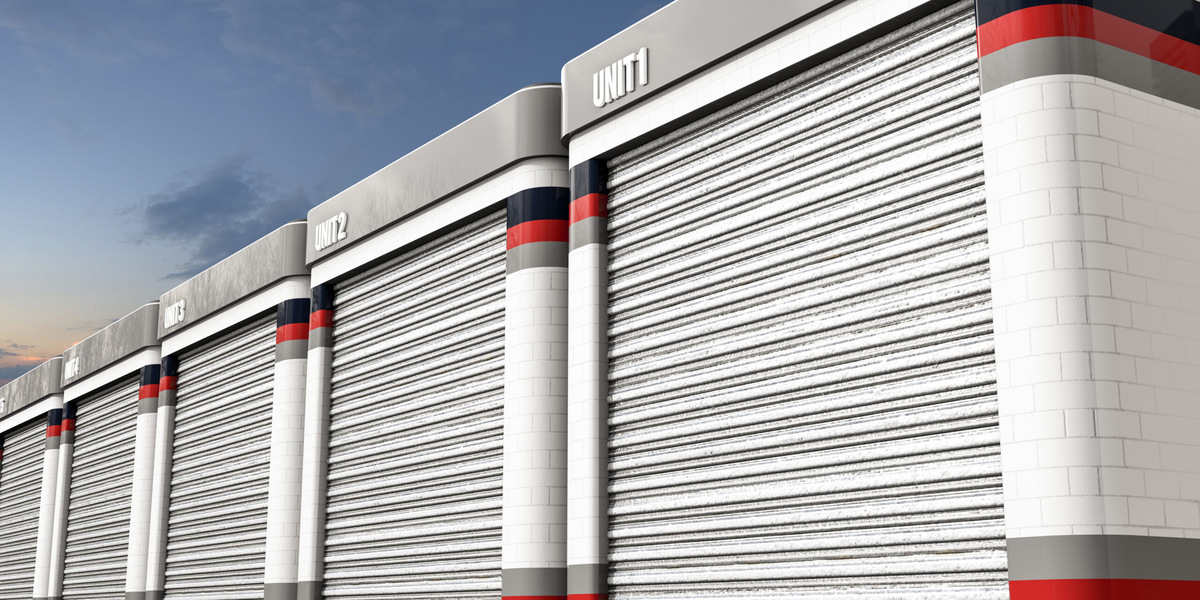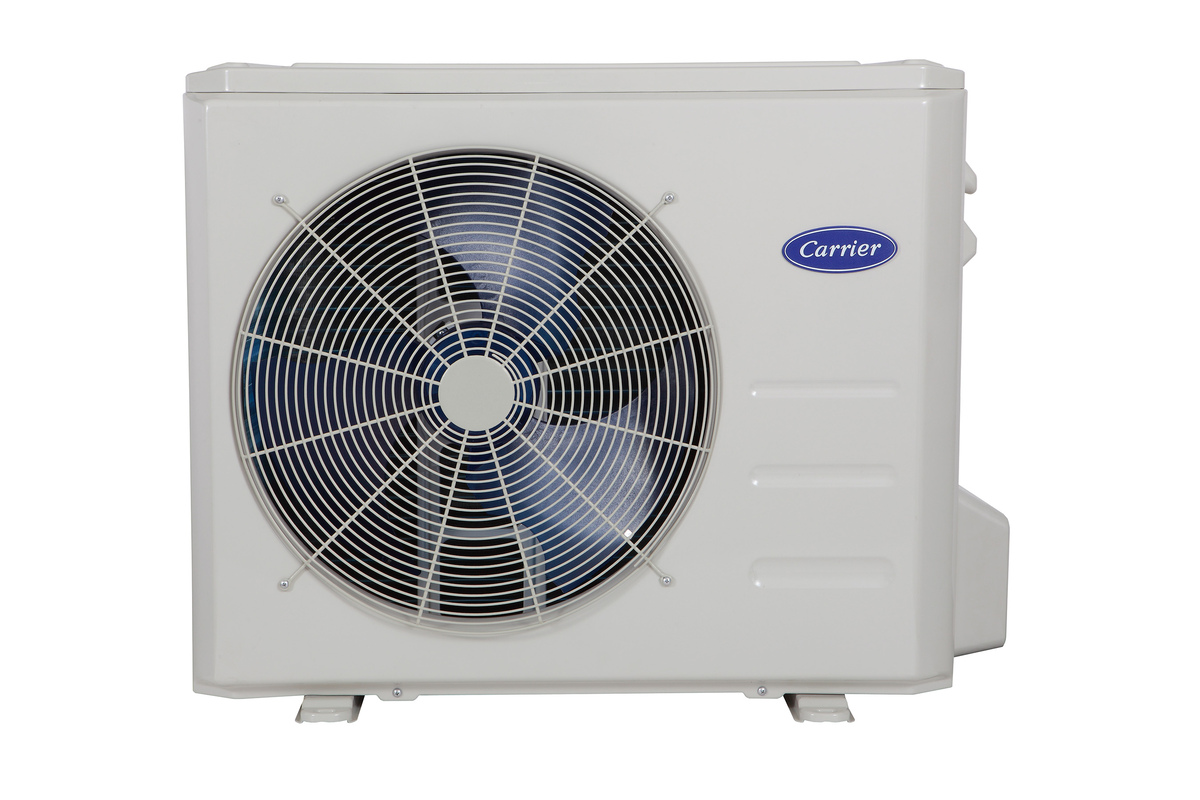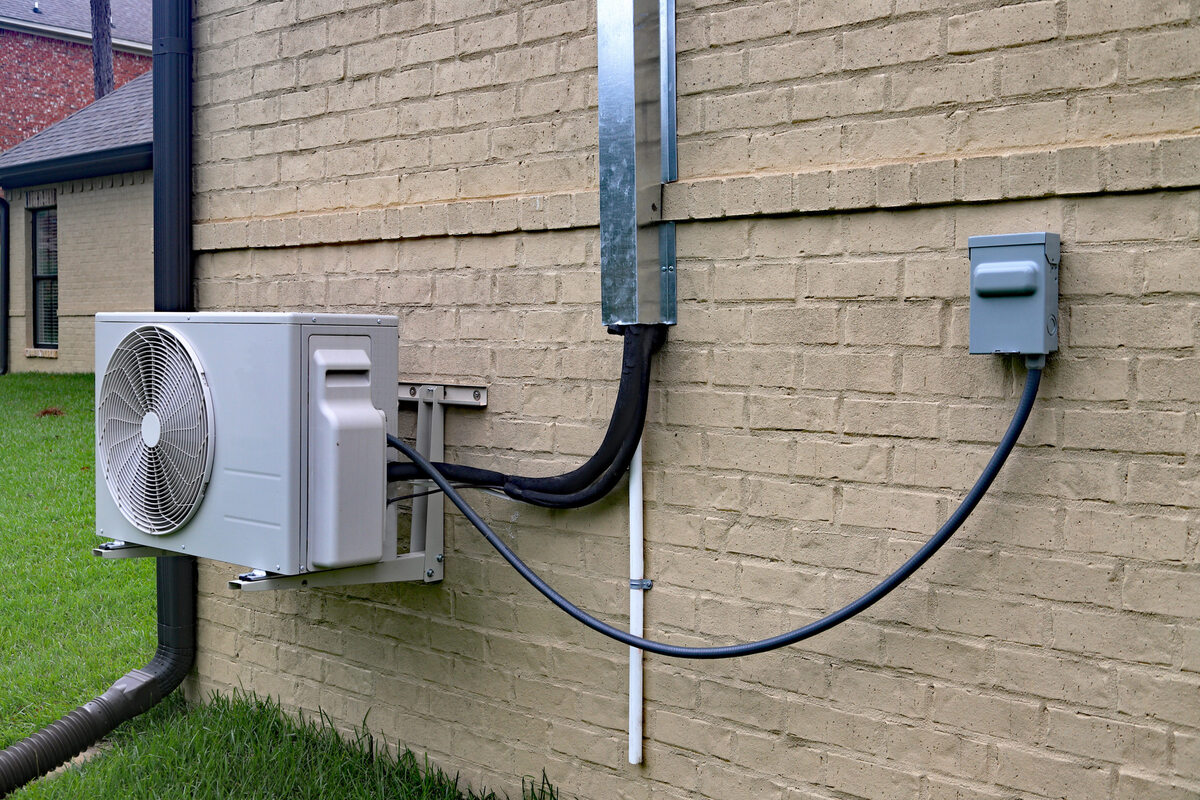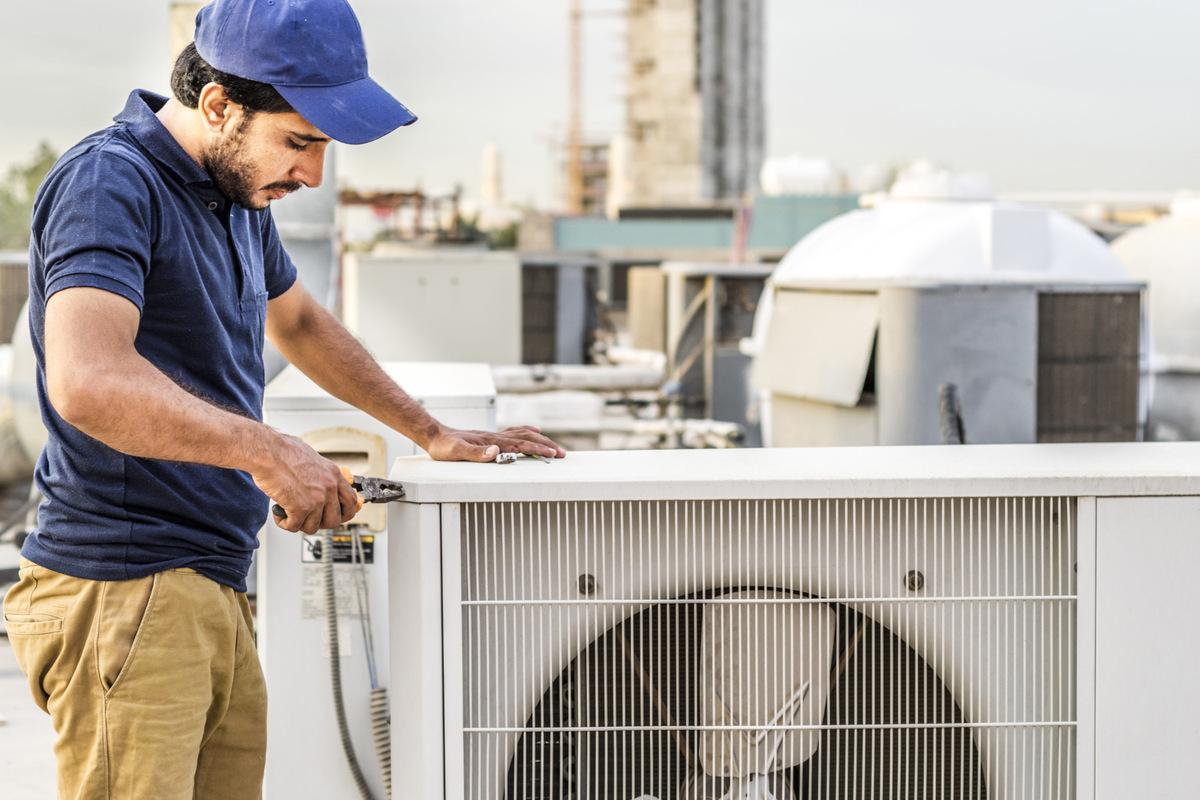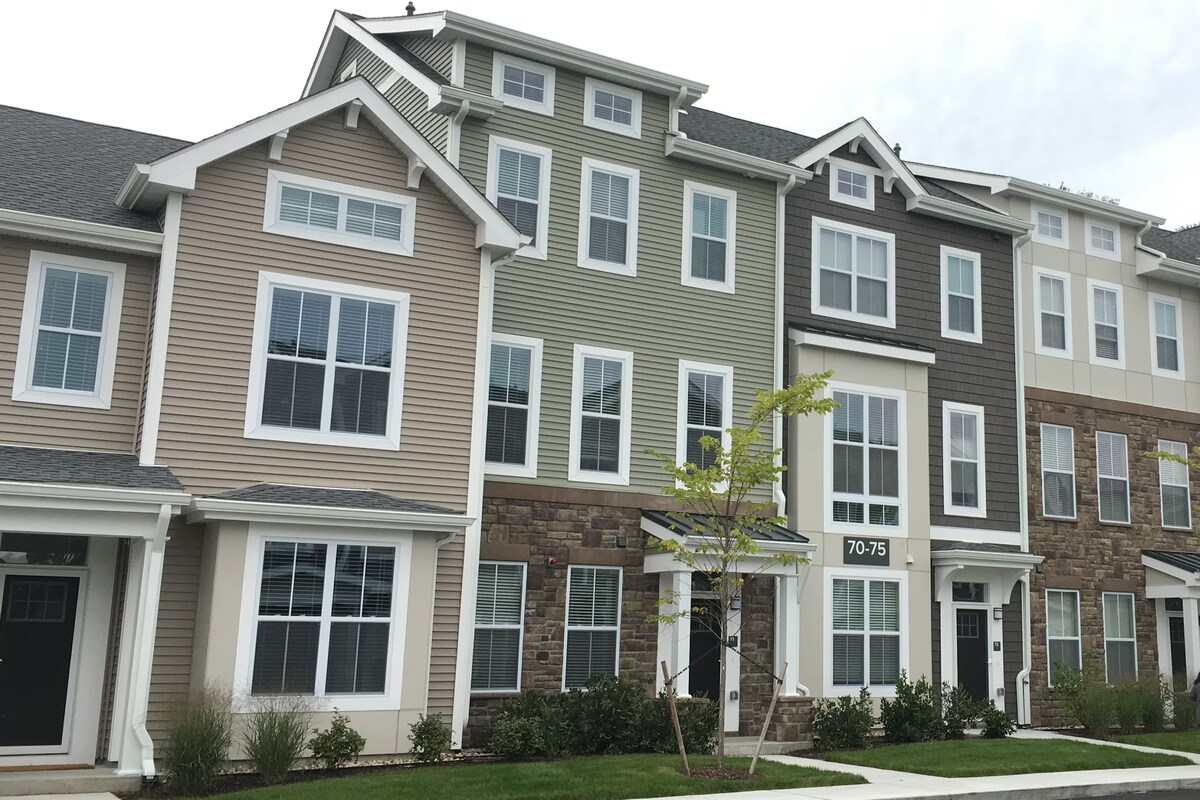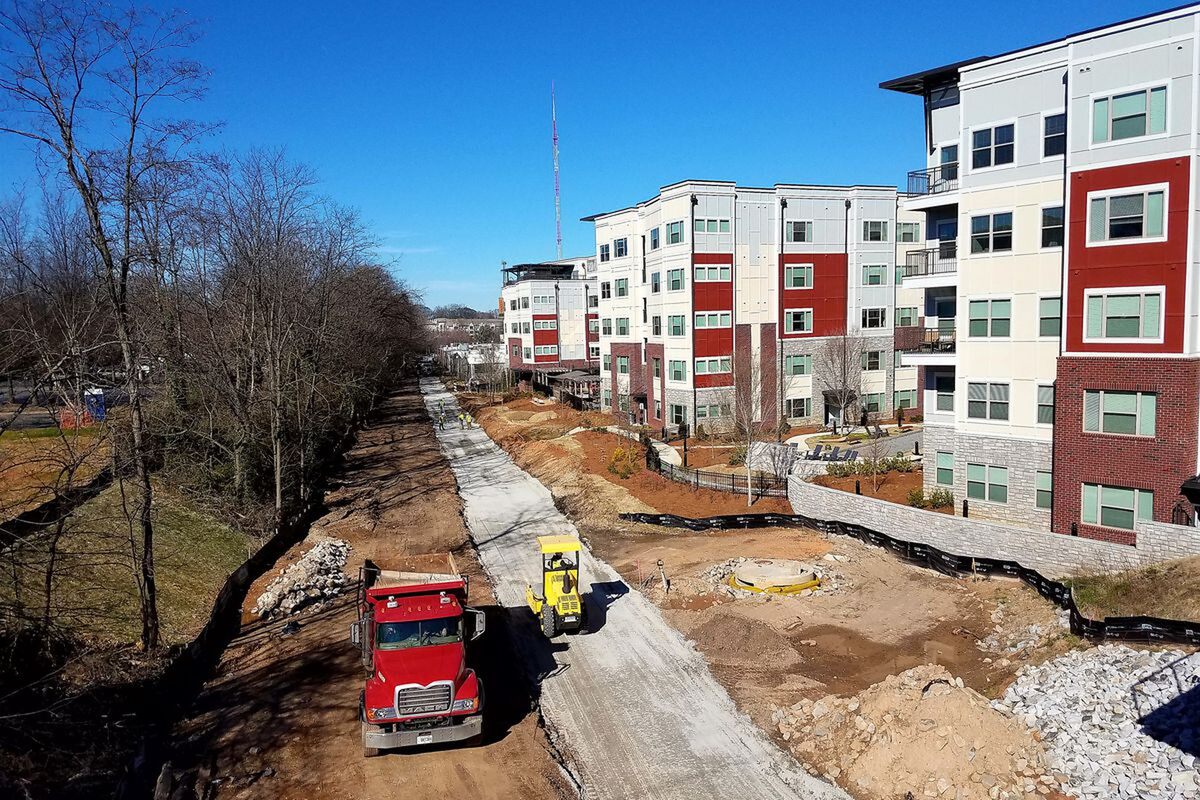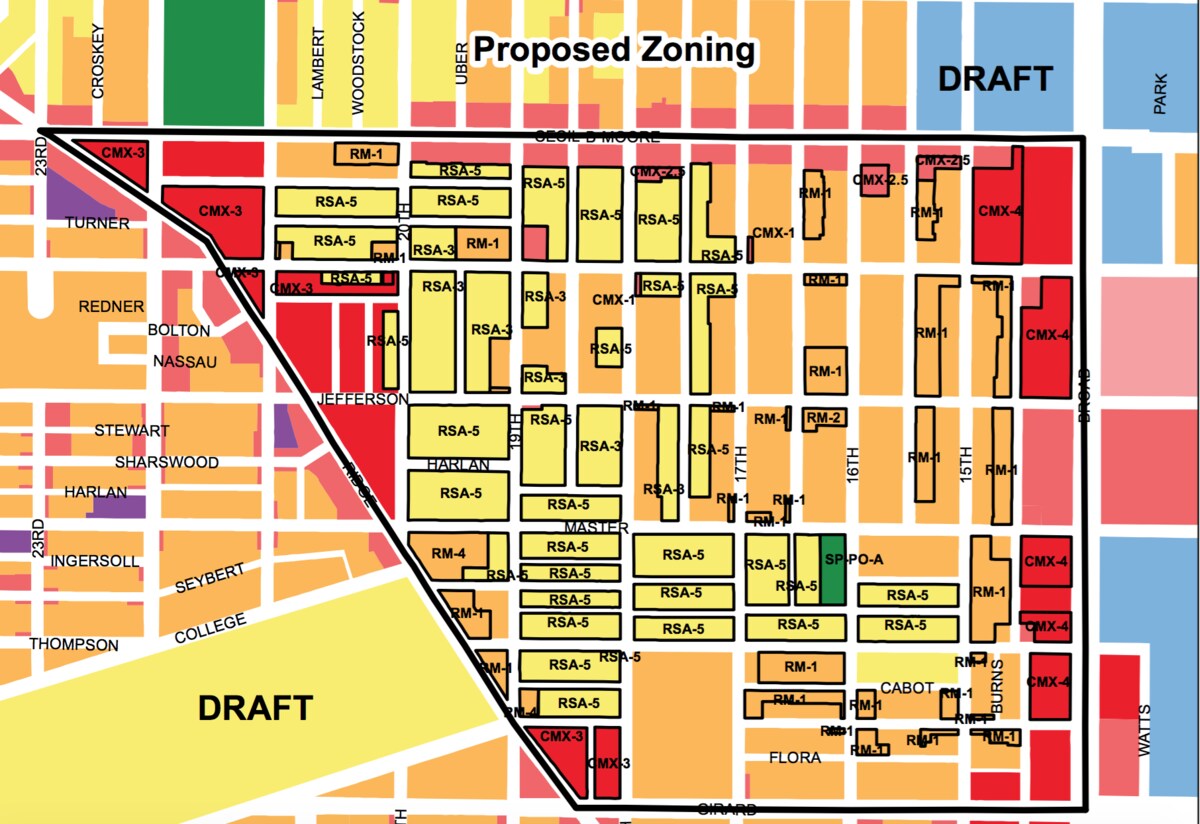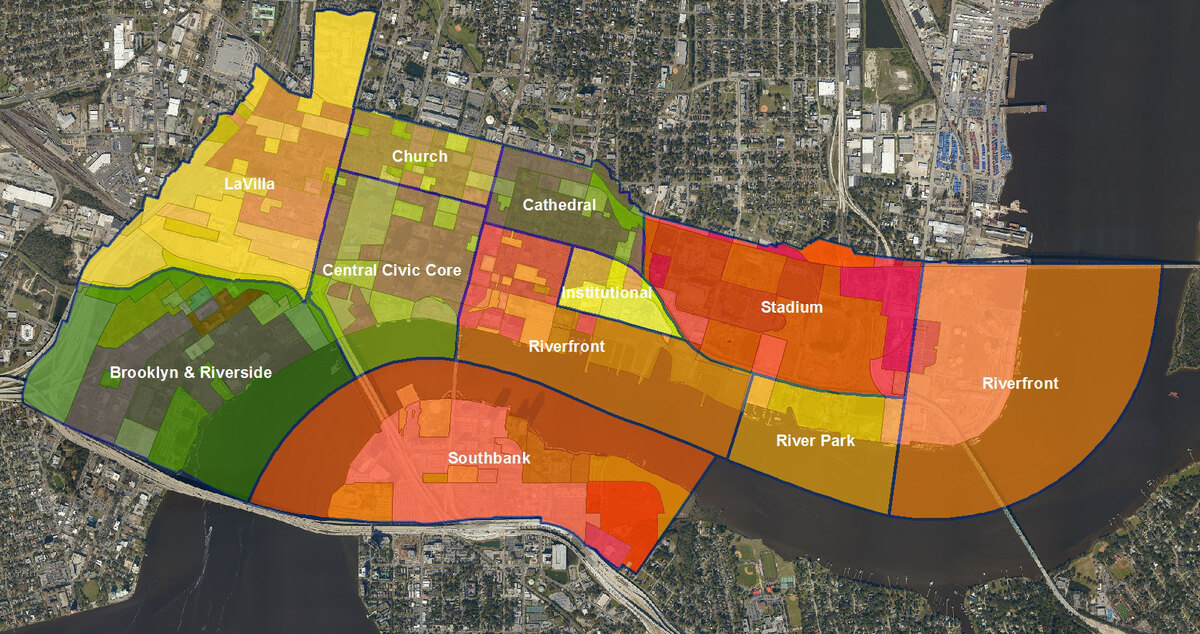Home>Home Maintenance>What Is Zoned Air Conditioning
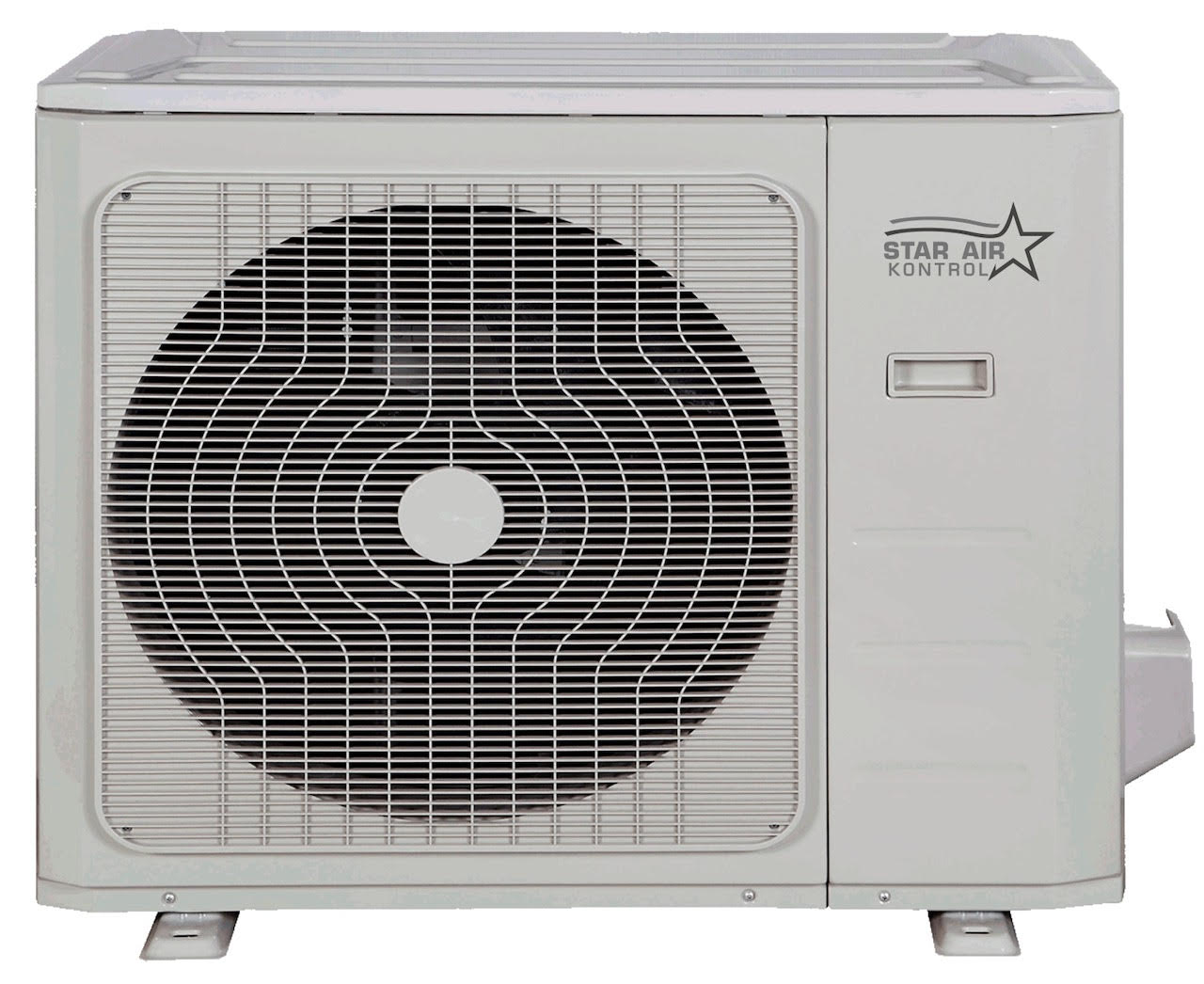

Home Maintenance
What Is Zoned Air Conditioning
Modified: March 6, 2024
Zoned air conditioning is a home maintenance solution that allows for personalized heating and cooling in different areas of your home.
(Many of the links in this article redirect to a specific reviewed product. Your purchase of these products through affiliate links helps to generate commission for Storables.com, at no extra cost. Learn more)
Introduction
Welcome to the world of zoned air conditioning – a revolutionary approach to home cooling that offers customizable comfort and energy efficiency. When it comes to maintaining a comfortable living environment, traditional central air conditioning systems have their limitations. They treat every room in your home as a single zone, often resulting in uneven cooling and wasted energy. But with zoned air conditioning, you can say goodbye to hot spots and hello to personalized comfort.
In this article, we will explore the concept of zoned air conditioning, how it works, the benefits it offers, and factors to consider when installing a zoned air conditioning system in your home. Whether you are a homeowner looking to upgrade your cooling system or simply curious about the latest advancements in home maintenance, this article will provide you with valuable insights.
So, what exactly is zoned air conditioning? Let”s dive in and find out.
Key Takeaways:
- Zoned air conditioning offers personalized comfort and energy efficiency by allowing independent temperature control in different areas of your home, eliminating hot and cold spots.
- Factors to consider when installing zoned air conditioning include home layout, ductwork, thermostat placement, and professional installation to ensure optimal performance and efficiency.
Read more: What Is Dual Zone Air Conditioning
Definition of Zoned Air Conditioning
Zoned air conditioning is a cooling system that divides a home or building into different zones, allowing individual control of the temperature in each zone. Unlike traditional central air conditioning systems that treat the entire home as a single unit, zoned air conditioning enables precise temperature control in specific areas or rooms based on the occupants’ preferences and needs.
This technology is achieved through the use of dampers, thermostats, and a central control panel. The dampers are installed in the ductwork, which controls the flow of conditioned air to each zone. Each zone has its own thermostat, allowing occupants to set and maintain their desired temperature independently. The central control panel monitors and coordinates the operation of the dampers and thermostats, ensuring efficient and optimal cooling throughout the home or building.
By dividing the space into distinct zones, zoned air conditioning systems address the challenges posed by uneven cooling in larger or multi-story homes. They provide a tailored and consistent level of comfort, eliminating hot or cold spots and creating a more pleasant living environment. With zoned air conditioning, you no longer have to sacrifice the comfort of one room to regulate another.
It’s important to note that zoned air conditioning is not limited to cooling only. Some systems also offer zoned heating, allowing for year-round comfort control in different areas of your home. This versatility ensures that you can enjoy personalized comfort throughout every season.
How Zoned Air Conditioning Works
Zoned air conditioning works by dividing a home into multiple zones and independently controlling the temperature in each zone. This is achieved through a combination of dampers, thermostats, and a central control panel.
The first step in setting up a zoned air conditioning system is to install dampers in the ductwork. Dampers are devices that regulate the flow of conditioned air to specific zones. These dampers are controlled by the central control panel, which responds to the signals from the individual thermostats in each zone. When a zone requires cooling, the corresponding damper opens to allow the conditioned air to flow into that zone. Conversely, when a zone reaches the desired temperature, the damper closes to restrict the flow of air.
Each zone is equipped with its own thermostat, allowing occupants to set and adjust the temperature according to their comfort preferences. The thermostats communicate with the central control panel, which coordinates the operation of the dampers and ensures that each zone is receiving the appropriate amount of cooling based on the thermostat settings.
The central control panel is the brain of the zoned air conditioning system. It constantly monitors the temperature in each zone and adjusts the dampers accordingly to maintain the desired temperature. It also allows for programming and scheduling of temperature settings, providing further customization and energy efficiency.
With zoned air conditioning, temperature control is no longer limited to the entire home. Each zone can have its own unique temperature setting, whether it’s the living room, bedroom, or even the basement. This enables personalized comfort and eliminates the need to cool unoccupied or less frequently used areas of the home.
In addition to the dampers, thermostats, and control panel, zoned air conditioning systems may also utilize smart technology. With the integration of smart thermostats and mobile apps, homeowners can remotely control and monitor their zoned air conditioning system, allowing for even greater convenience and energy management.
In summary, zoned air conditioning works by dividing a home into separate zones and independently controlling the temperature in each zone through the use of dampers, thermostats, and a central control panel. This allows for customized comfort and energy efficiency, as each zone can be cooled or heated based on individual preferences and needs.
Benefits of Zoned Air Conditioning
Zoned air conditioning offers numerous benefits that go beyond traditional central cooling systems. Here are some of the key advantages of installing a zoned air conditioning system in your home:
- Customized Comfort: Zoned air conditioning allows for individual control of temperature in each zone, providing personalized comfort for everyone in the household. Each family member can set their desired temperature in their respective areas, eliminating disagreements over the thermostat and ensuring everyone’s comfort preferences are met.
- Energy Efficiency: With zoned air conditioning, you can avoid cooling or heating areas of your home that are not in use. This targeted approach conserves energy and reduces utility costs. By only conditioning occupied areas, you can significantly cut down on energy consumption and lower your carbon footprint.
- Reduced Hot and Cold Spots: Traditional central air conditioning systems often struggle to maintain consistent temperatures throughout the home, resulting in hot and cold spots. Zoned air conditioning eliminates these temperature imbalances by allowing for precise control in each zone, ensuring even cooling all around.
- Improved Indoor Air Quality: Zoned air conditioning can improve indoor air quality by providing independent control over each zone’s airflow. This helps prevent the spread of contaminants and allergens, as well as maintain consistent humidity levels, resulting in a healthier and more comfortable living environment.
- Enhanced Energy Management: Zoned air conditioning systems often come with programmable settings and scheduling capabilities. You can optimize energy management by programming different temperature settings for different times of the day or week. This feature is particularly beneficial for homes with varying occupancy patterns and can lead to additional energy savings.
- Flexibility and Versatility: Zoned air conditioning systems can be retrofitted into existing homes, offering flexibility in installation. They are also compatible with various types of heating and cooling equipment, including heat pumps and ductless mini-split systems, making them a versatile option for different homes and climates.
These benefits make zoned air conditioning an attractive solution for homeowners who prioritize comfort, energy efficiency, and flexibility in their cooling systems. By investing in zoned air conditioning, you can enjoy the perfect balance of comfort, cost savings, and environmental responsibility.
Factors to Consider When Installing Zoned Air Conditioning
Before installing a zoned air conditioning system in your home, it is important to consider several factors to ensure optimal performance and efficiency. Here are some key considerations to keep in mind:
- Home Layout: Analyze the layout of your home to determine the number of zones needed. Consider factors such as room usage, sunlight exposure, and insulation. Different areas may require separate zones to maintain desired temperatures effectively.
- Ductwork: Assess the condition and design of your existing ductwork. Zoned systems require dampers, which regulate airflow to individual zones. Evaluate if your ductwork is compatible with the installation of dampers or if modifications may be needed.
- Thermostat Placement: Determine the ideal location for thermostats in each zone. They should be placed in areas where they can accurately measure the temperature and not be influenced by external factors such as direct sunlight or drafts. Consult with a professional to ensure proper thermostat placement.
- System Design: Work with an experienced HVAC professional to design the zoned air conditioning system specific to your home’s needs. Proper system design ensures efficient cooling in each zone, avoiding overworking the system and maximizing energy savings.
- Zoning Controls: Consider the type of zoning controls you want for your system. There are various options available, including manual zoning controls, wireless controls, or smart thermostats. Choose a control system that aligns with your preferences and allows for convenient temperature adjustments.
- Installation Costs: Evaluate the installation costs associated with zoned air conditioning. While zoned systems can offer energy savings in the long run, the initial installation cost may be higher than traditional central cooling systems. Obtain quotes from multiple HVAC contractors to compare costs and ensure you are getting a fair price.
- Maintenance Requirements: Understand the maintenance requirements of zoned air conditioning systems. Regular maintenance, such as cleaning filters, inspecting dampers, and calibrating thermostats, is crucial to ensure proper functioning and performance. Consider the ease of maintenance and factor it into your decision-making process.
- Professional Installation: It is strongly recommended to hire a professional HVAC contractor with experience in zoned air conditioning installations. They will accurately assess your home’s needs, size the system correctly, and ensure proper installation and setup for optimal performance.
Considering these factors will help you make informed decisions and ensure that your zoned air conditioning system is tailored to meet your home’s cooling requirements effectively. Remember, professional guidance and expertise are key to a successful installation and long-term satisfaction with your zoned air conditioning system.
Zoned air conditioning allows you to control the temperature in different areas of your home separately, saving energy and increasing comfort.
Read more: What Is Central Air Conditioning System
Common Applications of Zoned Air Conditioning
Zoned air conditioning systems are versatile and can be beneficial in various applications and settings. Here are some common scenarios where zoned air conditioning is particularly advantageous:
- Multi-Story Homes: Multi-story homes often experience temperature variations due to the uneven distribution of heat. Zoned air conditioning allows for precise temperature control on each floor, ensuring consistent comfort throughout the entire home.
- Large Homes: In larger homes, zoned air conditioning can help address the challenges of cooling a vast space. By dividing the home into zones, it becomes easier to achieve balanced and even cooling, eliminating hot and cold spots.
- Open-Concept Living Spaces: Open-concept living spaces have become increasingly popular, but they present challenges when it comes to cooling. Zoned air conditioning allows you to cool each area separately, ensuring comfort while preserving the open feel of the space.
- Basements and Attics: Basements and attics tend to have different temperature needs compared to the main living areas. Zoned air conditioning allows you to independently control the cooling in these spaces, optimizing energy usage and maintaining comfortable conditions.
- Home Offices: With the rise of remote work, many households now have home offices. Zoned air conditioning enables personalized temperature settings in these spaces, ensuring maximum productivity and comfort during working hours.
- Guest Rooms: When you have guests staying over, zoned air conditioning allows you to provide them with individualized comfort by adjusting the temperature in the guest rooms to their liking.
- Multi-Unit Dwellings: Zoned air conditioning systems are also practical for multi-unit dwellings such as apartments or condos, where each unit can have its own separate zone for optimal comfort control.
- Commercial Spaces: Zoned air conditioning is not limited to residential applications. It is also widely used in commercial settings such as offices, retail stores, and restaurants. Zoning allows for customized temperature control to cater to different areas and occupancy levels.
Zoned air conditioning offers flexibility and adaptability to various settings, ensuring comfort, energy efficiency, and individual preferences. Whether you are a homeowner looking to improve the cooling in your home or a business owner seeking better climate control, zoned air conditioning can provide an effective and efficient solution.
Cost Considerations for Zoned Air Conditioning Installation
Installing a zoned air conditioning system involves various costs that you need to consider before making a decision. While the initial investment may be higher compared to traditional central cooling systems, zoned air conditioning offers long-term benefits in terms of energy savings and personalized comfort. Here are the key cost considerations when installing zoned air conditioning:
- Equipment Costs: The cost of zoned air conditioning equipment will depend on factors such as the size of your home, the number of zones required, and the type of system you choose. The equipment costs include zoning controls, dampers, thermostats, and the central control panel. It is recommended to obtain multiple quotes from reputable HVAC contractors to compare prices and ensure you are getting a fair deal.
- Installation Costs: The installation costs will vary based on the complexity of your home’s layout, existing ductwork, and the number of zones that need to be created. Factors such as the need for duct modifications, wiring, and labor will contribute to the overall installation costs. Hiring a professional HVAC contractor with experience in zoned air conditioning installations is crucial to ensure proper setup and performance, albeit at an additional cost.
- Operating Costs: While zoned air conditioning systems offer energy savings, it’s important to consider the long-term operating costs. Zoned systems are designed to cool specific zones as needed, reducing energy consumption compared to cooling the entire home. However, the overall efficiency and operating costs will depend on factors like the age and condition of your HVAC equipment, insulation levels, and overall energy usage habits.
- Maintenance Costs: Like any cooling system, zoned air conditioning requires regular maintenance to ensure optimal performance and longevity. Consider the costs associated with routine maintenance, such as cleaning filters, inspecting dampers, and calibrating thermostats. While the maintenance costs may be minimal, it is essential to factor them into your budget to keep the system running efficiently.
- Return on Investment: Although zoned air conditioning may involve higher upfront costs, it offers long-term benefits and potential savings. Consider the energy savings you can achieve by only cooling the zones that are in use and avoiding wasted energy in unoccupied areas. Calculate the potential return on investment over time to determine the cost-effectiveness of installing a zoned air conditioning system.
- Warranty and Service Plans: When purchasing a zoned air conditioning system, consider the warranty offered by the manufacturer. A comprehensive warranty will provide peace of mind and potentially cover any unexpected repairs or replacement of components. Additionally, inquire about service plans that can provide regular maintenance and potentially extend the longevity of your system.
It is important to weigh these cost factors against the benefits and long-term savings that zoned air conditioning offers. While the initial investment may be higher, zoned air conditioning can provide you with personalized comfort, energy efficiency, and a more comfortable living environment.
Maintenance and Troubleshooting Tips for Zoned Air Conditioning Systems
Maintaining your zoned air conditioning system is crucial to ensure optimal performance and longevity. By following these maintenance and troubleshooting tips, you can keep your system running smoothly and address any issues that may arise:
- Regularly Clean and Replace Air Filters: Clean or replace the air filters in your zoned air conditioning system regularly. Clogged filters restrict airflow, reduce efficiency, and can lead to system malfunctions. Check the manufacturer’s recommendations for filter cleaning or replacement intervals.
- Inspect and Test Damper Operation: Periodically inspect the dampers in your zoned air conditioning system to ensure they are functioning correctly. Inspect for any visual damages or obstructions that may affect their operation. Use the control panel to test the opening and closing of each damper to verify they are working correctly.
- Calibrate Thermostats: Check the accuracy of the thermostats in each zone and calibrate them if necessary. A thermostat that is not calibrated correctly may lead to inaccurate temperature readings and improper cooling. Consult the manufacturer’s instructions or seek professional assistance if needed.
- Monitor Temperature and Zone Performance: Regularly monitor the temperature in each zone to ensure it matches the desired setting. If you notice significant temperature variations or inconsistent cooling, it may indicate a problem with the dampers, thermostat, or system settings. Troubleshoot and address the issue accordingly.
- Keep Vents and Registers Clean: Ensure that vents and registers in each zone are clean and free from dust or debris. Blocked vents can restrict airflow and lead to inefficient cooling and performance issues.
- Check Ductwork for Leaks: Inspect the ductwork periodically for any signs of leaks or loose connections. Leaking ducts can lead to energy loss and decreased system efficiency. If you suspect a ductwork issue, contact a professional to conduct a thorough inspection and necessary repairs.
- Schedule Professional Maintenance: Regularly schedule professional maintenance for your zoned air conditioning system. A certified HVAC technician can perform a comprehensive inspection, clean the components, lubricate moving parts, and identify any potential issues before they become major problems.
- Refer to Manufacturer Manuals: Familiarize yourself with the manufacturer’s manuals and guidelines for your zoned air conditioning system. They provide valuable information on maintenance procedures, troubleshooting steps, and proper operation of the system.
- Addressing System Malfunctions: If you encounter any system malfunctions, such as the failure of a zone to cool or irregular airflow, refer to the troubleshooting section of the manufacturer’s manual. Follow the recommended steps to identify and address the issue. If troubleshooting steps do not resolve the problem, contact a professional HVAC technician for assistance.
By following these maintenance tips and troubleshooting guidelines, you can ensure that your zoned air conditioning system operates efficiently, provides personalized comfort, and minimizes the risk of major malfunctions. Regular maintenance and addressing issues promptly will help extend the lifespan of your system and optimize its performance for years to come.
Conclusion
Zoned air conditioning systems offer a modern, efficient, and customizable solution for cooling your home. By dividing your space into different zones and independently controlling the temperature in each zone, zoned air conditioning provides personalized comfort, energy efficiency, and eliminates hot and cold spots.
In this article, we explored the definition and working principle of zoned air conditioning. We discovered how zoned air conditioning systems use dampers, thermostats, and a central control panel to achieve precise temperature control in each zone. Additionally, we discussed the benefits of zoned air conditioning, including customized comfort, energy efficiency, improved indoor air quality, and enhanced energy management.
We also examined important factors to consider when installing a zoned air conditioning system, such as understanding your home layout, assessing ductwork, and selecting the right zoning controls for your needs. Cost considerations, including equipment and installation costs, as well as long-term savings and return on investment, were explored to help you make informed decisions.
To keep your zoned air conditioning system running smoothly, we provided maintenance and troubleshooting tips. Regular cleaning and replacement of air filters, inspection of dampers, calibration of thermostats, and monitoring temperature and zone performance are essential for optimal system operation. Professional maintenance and referring to manufacturer manuals are recommended for thorough upkeep.
In conclusion, zoned air conditioning is a valuable investment for homeowners seeking personalized comfort and energy efficiency. By considering the factors outlined in this article and following proper maintenance and troubleshooting practices, you can enjoy a cool and comfortable home while maximizing energy savings and system longevity.
So, take the step towards zoned air conditioning, and experience the benefits of customized comfort and efficient cooling in every corner of your home.
Frequently Asked Questions about What Is Zoned Air Conditioning
Was this page helpful?
At Storables.com, we guarantee accurate and reliable information. Our content, validated by Expert Board Contributors, is crafted following stringent Editorial Policies. We're committed to providing you with well-researched, expert-backed insights for all your informational needs.

